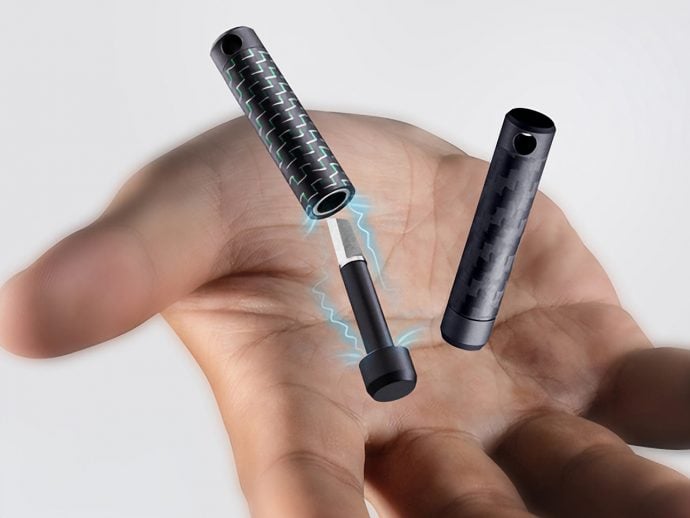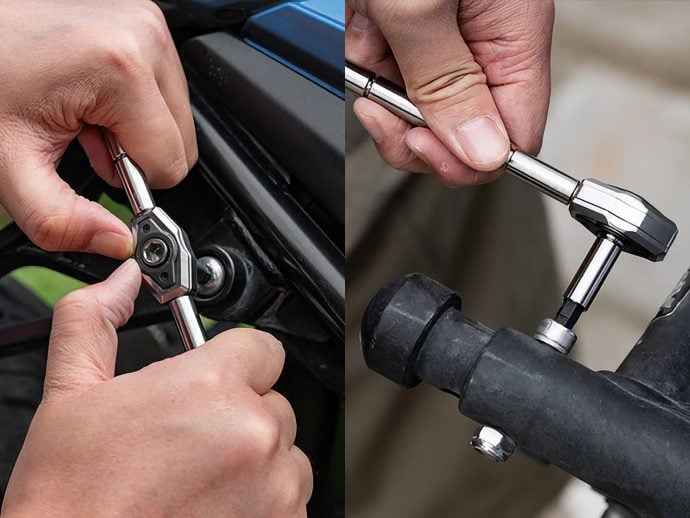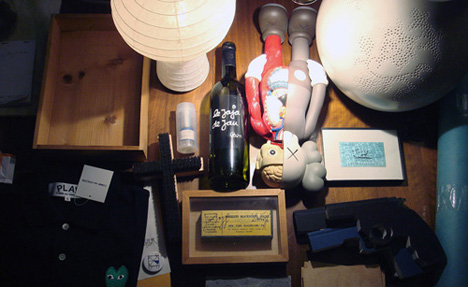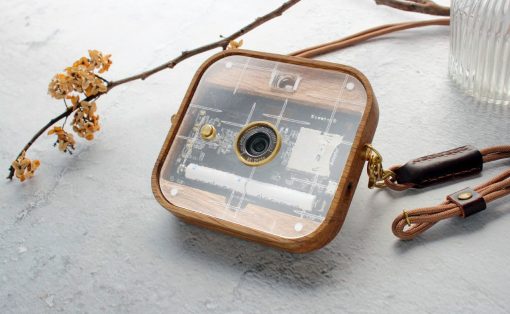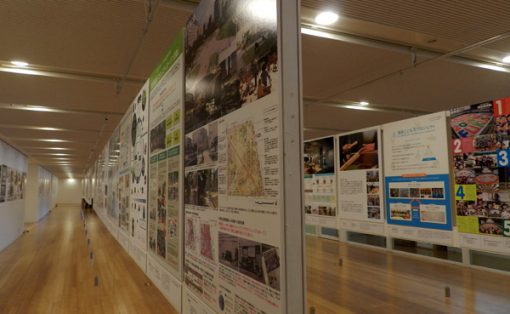Part 3 of this fantastic exhibition. Makoto Azuma, Mint Designs, Nendo, Nissan Motor CO. LTD.
Exhibition: Tokyo Fiber
Biodegradable Moss Planter Makoto Azuma / Unitika Ltd. Material: TERRAMACFlower artist Makoto Azuma’s characteristic, scrupulous style unhesitatingly draws out the beauty of plants and flowers, revealing their dignity and majesty. here, he uses TERRAMAC because it is manufactured from plant derived polylactic acid to make the material biodegradable. In other words, it is a fiber that will eventually return to nature. The material is woven so as to give depth to the resulting fabric. Azuma uses it as a very broad planter, turning the exhibition site into a mossy wetland. Gorgeous!
Shaped Masks Using Moldable Nonwoven Fabric Mint Design / Asahi Kasei Fibers Corporation Material: SMASHThe thinking behind Mint Designs’ clothing design process is similar to that behind product design. This youthful fashion sense was tapped to find uses for a nonwoven fabric made from long polyester fibers. SMASH is an ideal molding fiber, highly thermoplastic, which enables it to be molded into dynamic, three-dimensional forms. The resulting product were masks press-formed into the shape of a face.
Moldable Nonwoven Lampshades Blown Up Like Balloons Nendo / Asahi Kasei Fibers Corporation Material: SMASHProduct design group Nendo conceived a completely new 3D product. Non-woven fabric shaped by a balloon swelling up in hot water as it boils becomes a lampshade, retaining the shape of the balloon. In addition to being extremely pliant and having thermoplastic properties, the material is air-permeable to liquids, but at the same time it is light weight and does not tear easily. These are all properties that make it suitable for lampshades. The shape is a natural result of the simple manufacturing process, but it has a delightful resemblance to a mushroom. So cute!
Smiling Vehicle Wrapped in Stretch Fabric NISSAN MOTOR CO., LTD. Design Center + Hara Design Institute, NDC Material: ROICAThe 2007 SENSEWARE exhibition presented cars with soft skins like animals. That concept is further developed here with a ‘laughing vehicle.’ one of the ideas that emerged when examining why it is useful for a vehicle to have a soft membrane. The car can become even more an extension of the driver’s personality, creating the potential for emotionally-engaged and emotionally-satisfying interaction.

